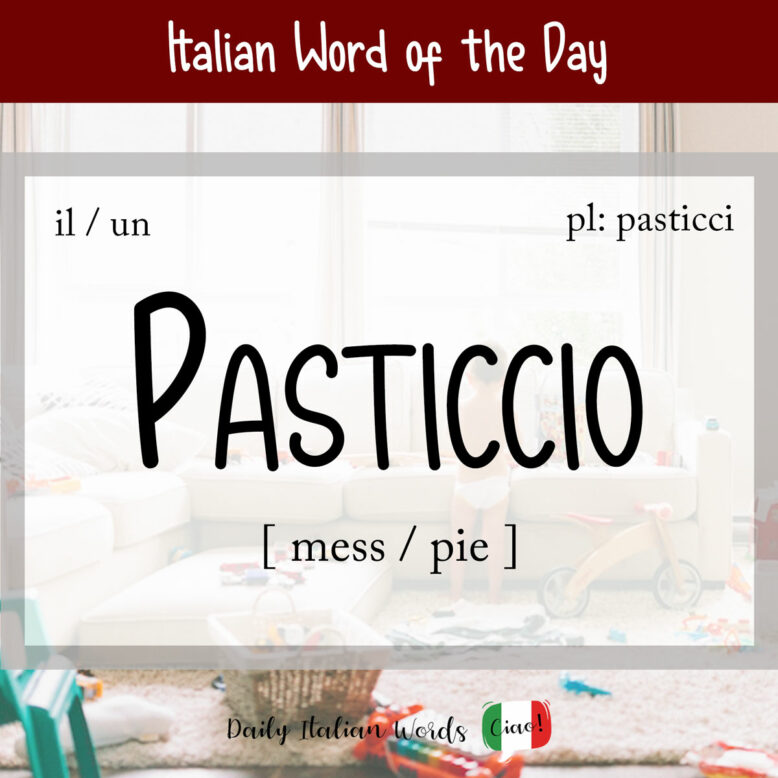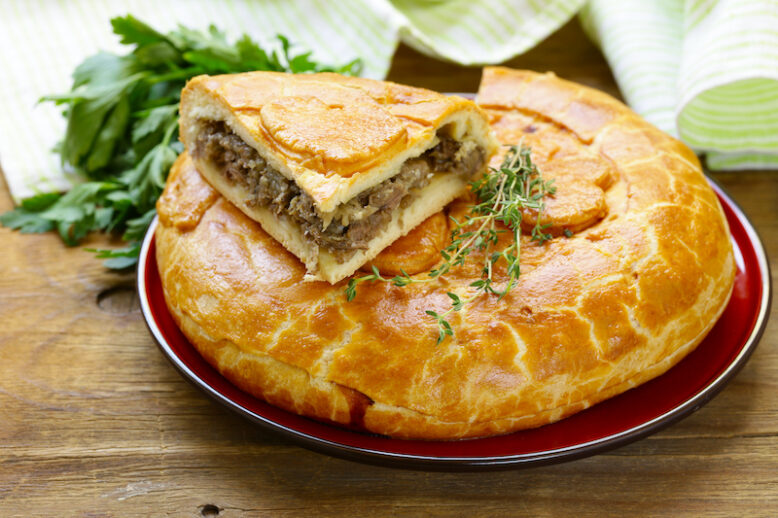The Italian word pasticcio is best translated as mess or muddle in English, and as you have probably guessed, it is used to describe a situation or piece of work that is chaotic, disorganised or poorly executed.

It is a masculine noun, so it takes the following definite and indefinite articles:
- il pasticcio = the mess
- i pasticci = the messes
- un pasticcio = a mess
- (dei) pasticci = (some) messes
Although the origin of the word is uncertain, it is thought to be derived from the Latin pasteceus – literally “something made of paste” – which in turn derives from the Latin pasta. This may be a reference to the original use of the word, which was a type of dish made from leftover or mixed ingredients, similar to a casserole or pie. Even today, pasticcio is used in Italian to describe specific kinds of pies, such as pasticci di carne (meat pies) or pasticci di spinaci (spinach pies).

Over time, the meaning has evolved to refer more generally to any situation that is messy, confused or difficult to understand. You can expect it to be used in humorous and colloquial way to refer to any number of things, from a cluttered living room floor following a child’s birthday party to a romantic relationship that’s on the rocks.
Questa traduzione è un gran pasticcio.
This translation is a real mess.
Indeed, after my toddler has thrown half of his dinner on the floor, you can guarantee that I will let out an exasperated:
Che pasticcio!
What a mess!

And if you noticed that the word pasticcio closely resembles to the English word pastiche, well done! It is, in fact, a direct derivative of pasticcio via the French pastiche, but has come to mean something completely different: an artistic work consisting of a medley of pieces imitating various sources.
Another word that bears a similar name is the Greek pastitsio (παστίτσιο), which is a baked pasta dish with ground meat and béchamel sauce. It too derives from the Italian term.
There are a few terms related to pasticcio, including the verb pasticciare (to make a mess, to scribble, to mess around) and one of my favourites, pasticcione / pasticciona, which literally means “mess maker”. The latter is often used in a joking sense, especially when directed towards young children.
Heather Broster is a graduate with honours in linguistics from the University of Western Ontario. She is an aspiring polyglot, proficient in English and Italian, as well as Japanese, Welsh, and French to varying degrees of fluency. Originally from Toronto, Heather has resided in various countries, notably Italy for a period of six years. Her primary focus lies in the fields of language acquisition, education, and bilingual instruction.


